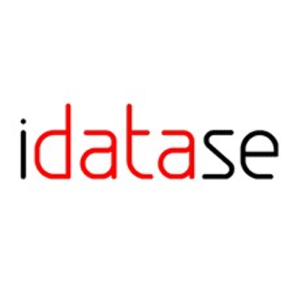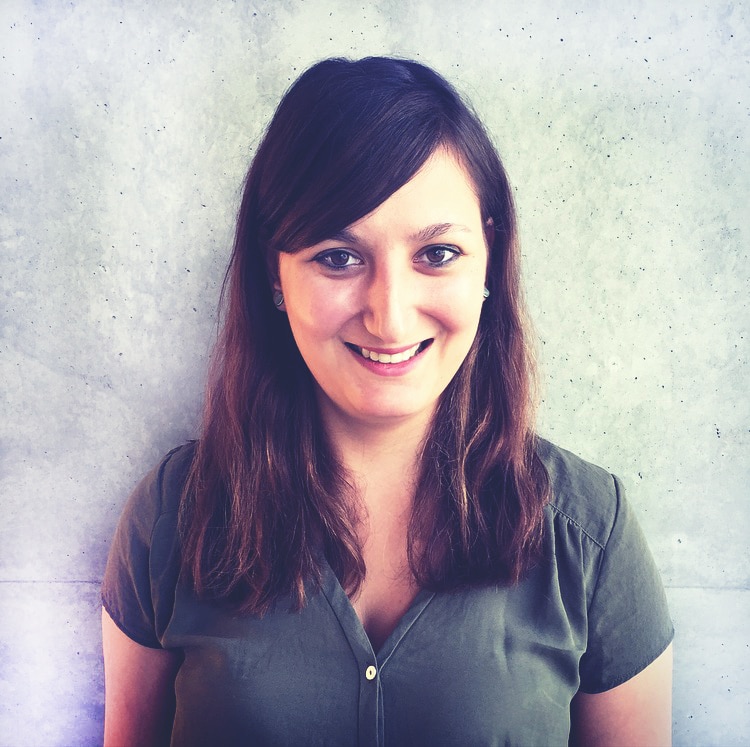Finalist | Idatase (Germany) - Helps engineers spend their time on solutions rather than problems
 Our Industry 4.0 finalist idatase has come up with an innovative tool for maintenance and administration of complex network systems. NetLume automatically collects the sensor or log data of devices in the network and turns them into well formatted information for analyzing purposes. Jan Haken, CEO of idatase, gave us detailed answeres about his solution.
Our Industry 4.0 finalist idatase has come up with an innovative tool for maintenance and administration of complex network systems. NetLume automatically collects the sensor or log data of devices in the network and turns them into well formatted information for analyzing purposes. Jan Haken, CEO of idatase, gave us detailed answeres about his solution.
For more information you can also visit: CODE_n CONNECT | Website | Facebook
Where did your idea for the company come from?
Jan Haken (Idatase): Philipp, one of the partners in idatase, as well as I myself, have been working as IT consultants and engineers in infrastructure automation for more than 15 years. We know how painful it can be to identify problems in abstract network based systems. Checking logs or data in the network is a very exhausting task and you need to go through a series of interconnected systems to single out the most likely causal chain for a given symptom. It requires a huge amount of experience, knowledge and intuition to really get a solid grasp of things in such complex structures. Through one of my projects which I was engaged in a few years back I realized that the exact same problem is what bothers all kinds of heterogeneous industrial environments, be it cars, industrial plants, machinery and even abstract systems like logistics chains. The said project was about trying to identify a certain malfunction generated by a faulty part in an industrial system by using sensor data – independent of location, time, work load on the system or other extrinsic or intrinsic factors.
Throughout your work life it becomes apparent that similar errors, malfunctions or other problems obviously leave footprints, but unfortunately their structures are not as apparent and repetitive as someone trying to fix the problem would wish for. This is because oftentimes too much unrelated data interferes. When we came to realize all this, it became apparent that the deterministic approach used for my former project would not be flexible enough for a broader use, by quite a margin, and that something way smarter was needed. Therefore we started to think of process that could automatically learn how to find those fingerprints and provide the hints needed to work on solutions, with more focus. Such a process of learning and providing feedback is very similar to the classic manual approach and will, among other things, support engineers and help them to concentrate on finding solutions – so they don’t spend ages finding the problem in the first place.
For which kind of audience is your product or service intended and what problem is it solving?
Jan Haken (Idatase): As already mentioned, NetLume will be an assistant for engineers and/or network administrators. The basic principle is that a user of the system would provide the information about a problem each time it occurs, and then NetLume will learn the situation of the network, based on the sensor data available, which it abstracts for ideal processing. Next time, if the same problem occurs, NetLume will provide information about when and where it originated. Through its projective element, having learned the normal state of a system it will also be able to offer predictive analytics regarding the likelihood of a certain malfunction and can therefore offer a better evaluation of maintenance needs and intervals.
The audience for such a system should be obvious: everybody with enough data of an adequately complex system. NetLume works with classic office computer networks as well as with huge power plants or your very own car. So everyone involved in industries producing or maintaining such systems is a potential customer.
Tell us a bit about the company’s founders like their professional or industry background and the origins of the founding idea.
Jan Haken (Idatase): I met Philipp Herzog at university where he was one of my co-students. He’d been working in the IT industry with his own business for quite a few years before I met him and we started to cooperate more and more with our projects. He also has a finance and business background and a very structured and disciplined approach which I came to realize is a really good fit to compensate for my own sometimes rather impulsive style, but it also works the other way around. We tend to have our arguments but always come to a solid conclusion which almost always yields a much better result than either of us could have achieved on their own. And the very fact that we’re able to tell each other straight to our faces what we think and mutually value the other’s input is worth a fortune in my book when it comes to running a company!
Tung is originally from Vietnam and made his decision to come to Germany to study just because of the German beer, which is obviously good reasoning in its own right but he’s also an amazingly skilled developer. We also studied together in our very first semester at the Technical University in Darmstadt. After university, he spent more than 2 years at SAP where he worked as a researcher in the field of machine learning. He was always fascinated by the startup spirit and willing to create things. He has a competitive mind and has been involved with competitions for more than two thirds of his life (from the age of 10, as he recalls).
I myself started my first IT business at the age of 19 and was always interested in emerging developments in technology and science. I love traveling the world and spent many months in Hong Kong throughout my physics studies and I still have quite a soft spot for the place. What I love about idatase is that we managed to bring together an international team of brilliant minds and really great people who I just love working with. When we stumbled on the idea for NetLume it was instantly clear to me that with this team, we just had to go for it! Even after 15 years of running my own business I’m still very excited about building something new and vibrant such as idatase.
Machine-to-machine communication seems to be quite a challenge. Looking at the current status, can machines as we know them actually communicate with each other already? Or is this rather still a futuristic scenario? In the short terms, are you developing for a demand to come or an existing one?
Jan Haken (Idatase): Of course the kind of machines we work with don’t meet up at Starbucks to talk shop and chat about their horrible bosses who just bought that nasty surveillance tool – even though if they did, NetLume would certainly pick up that behavior for us to study! Nonetheless, there certainly is communication on a technical and formal level, after all that’s what computer and sensor networks are all about. For example, to a certain extent, and as we see them in basically every industry, modern just-in-time philosophies will always need the highest possible level of situational awareness, throughout the supply chain. This information distribution gets more and more automated to raise efficiency. NetLume itself uses this kind of information, delivered by all nodes in an abstract network. This might consist of several machines, many parts of one machine or even multi-layered approaches of both.
Obviously all this gets even more interesting as communication protocols between machines become more and more sophisticated, and at some point they will even use their own set of self-learning algorithms. So in my opinion, using a tool like NetLume will only increase in its usefulness in terms of understanding what is going on in such complex networks.






Comments